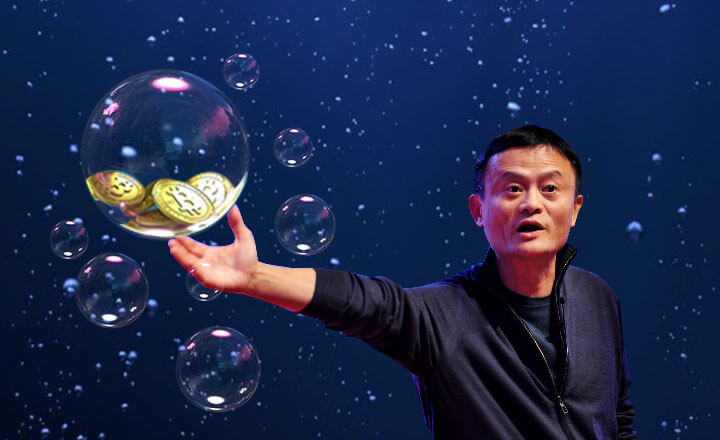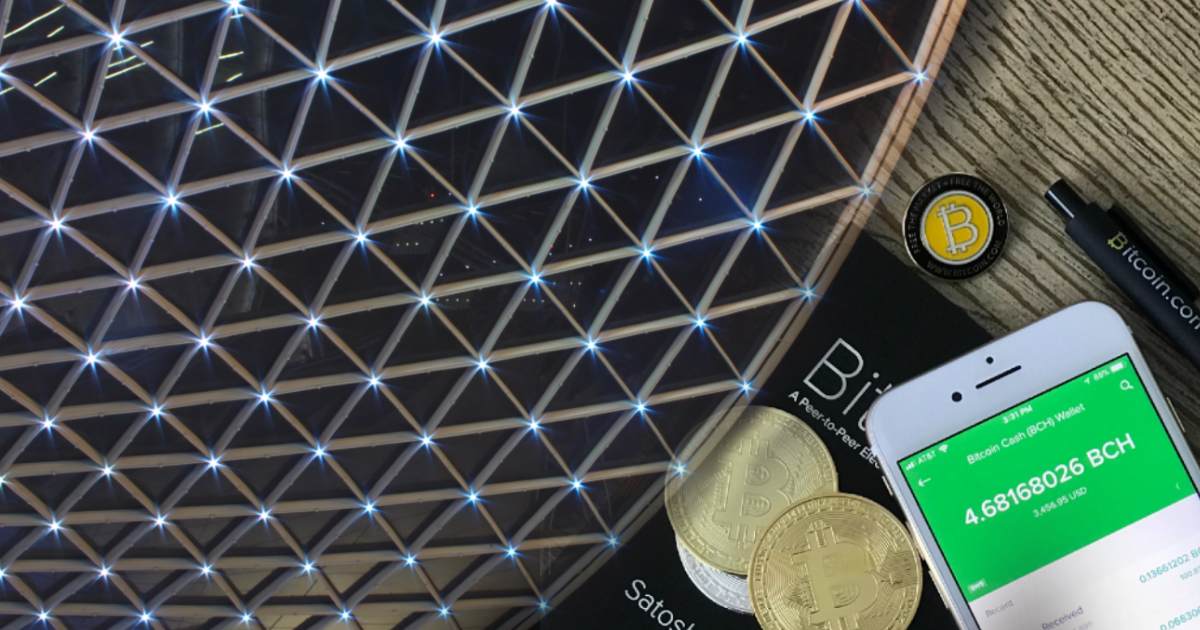Alibaba founder Jack Ma, in a launch of a blockchain-based remittance service, said that Bitcoin is a bubble and that blockchain has a bright potential.
Chinese billionaire Jack Ma remains unconvinced regarding Bitcoin’s performance.
The Alibaba founder and chairman shared his bearish sentiments during the launch of Ant Financial’s blockchain money transfer service on June 25 in Hong Kong. According to him, Bitcoin price movement exhibits a motion similar to bubble markets from the past centuries.
Ma said:
“Blockchain technology could change our world more than people imagine. Bitcoin however could be a bubble.”
According to Investopedia—an investment-related online encyclopedia—prices of an asset in a bubble cycle inflate with little to no relation to its intrinsic value. The movement is a reaction to a euphoric market acquiring the asset hoping to cash in on its increasing value. The online site explained that the bubble pops when no market participant wants to buy the highly valued asset. The disinterest causes a large sell-off and a continuous drop in prices back to its intended value or lower.
Some analysts suggest that Bitcoin’s price graph exhibits the movement of a bubble. The coin started the year 2017 below the US$1,000 level and steadily increased up to US$7,000 in November. What followed was a month full of hype after Bitcoin’s value skyrocketed by more than a double—reaching a peak just below US$20,000. However, the coin failed to sustain a high price and started a continuous fall up to now.
With that price movement, many financial giants, including Ma, are skeptical regarding the future of Bitcoin.
But, Blockchain is the Future…
A common theme in Ma’s statements is his pessimism toward Bitcoin and his optimism toward blockchain technology, in which most cryptos are running on. The Chinese billionaire uttered almost the same words as the one in Hong Kong during the Second Intelligence Congress in Tianjin last March.
Ma, speaking in a forum, said:
“There is no bubble for blockchain, but there’s a Bitcoin bubble.”
His optimistic stance on blockchain is one great reason why Ma was present at the unveiling of an innovation using the new technology. On June 25, the billionaire oversaw the launch of Ant Financial’s money remittance service based on the blockchain. The Hong Kong-based affiliate partnered with Philippine telecommunications company Globe Telecom to provide a faster way in which people can send money from Hong Kong to Manila.
As a demonstration of one of the blockchain’s practical applications, a Filipina worker in Hong Kong transferred money through Ant Financial’s AlipayHK app, which was then received by her family using Globe’s GCash app. The transaction took only three seconds long.
According to Ant Financial, its blockchain-based remittance offering is a first of its kind. The group has plans to expand this service from Hong Kong to other countries in the near future.
The Alibaba chairman noticed banks charge clients with exorbitant fees just to send money across borders. That observation caused him to look toward improving cross-border financial transactions. Alibaba tried to purchase US money transfer company MoneyGram International but failed.
Ma, still in Hong Kong, continued:
“At the time we wanted to [buy] MoneyGram and overhaul it to help people all over the world solve this issue. Due to reasons from the US our deal with MoneyGram did not succeed, so I said, ‘Let’s make one better [than MoneyGram]’ that uses the most advanced technology.”
He believes that the blockchain will one day change the human civilization. However, the technology needs more time. In a separate conference in China, Ma explained that a technological revolution requires 20 years to develop the technology and another 30 years to adopt it. Since the first blockchain in use—on Bitcoins to be exact—was first released in the late 2000s, the statement implies that enthusiasts must wait at least half a decade more before the world accepts blockchain.
Ma, translated by Twitter user @cnLedger, added:
“Blockchain should not be a tech to get rich overnight. There are still 1.7 billion people in the world who have no bank accounts, but most of them have mobile phones. The impact of blockchain on the future of humans may be far beyond our imagination.”
| Related: World Blockchain Summit Arrives at the Hottest ICO Destination – Singapore
…and Institutions Agree
Ma’s stance on blockchain coincides with that of the different national institutions. Many of these governments have started their own efforts in incorporating the promising blockchain technology.
European countries signed last February the declaration establishing the European Blockchain Partnership. The declaration states that signatory members are mandated to exchange information regarding blockchain-related and innovations. The partnership was brought out of the continent’s belief that as the leader in blockchain development, Europe should serve as the guiding light for other countries in this field.
The declaration stated:
“Blockchain-based services have the potential to enable more decentralized, trusted, user-centric digital services, and stimulate new business models benefiting our society and the economy. Such services will create opportunities to enhance services in both public and private sectors.”
Ma’s home country of China also sees the benefits of using blockchain technology. According to the Asian country’s Five-Year Plan ending on 2020, the Chinese government plans to support new technologies, including blockchain. At least two cities—one of them a planned Chinese megacity—will allocate part of their funds for blockchain-related investments.
While the discussion of Bitcoin’s use divides opinion, analysts observed that there is an implicit consensus—based on the developments of financial institutions and national governments—that blockchain technology has a place in the future.
| Related: The European Summit Braces for 2018 as the Ultimate Networking Conference







